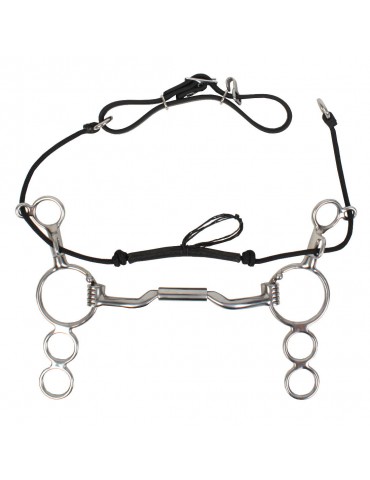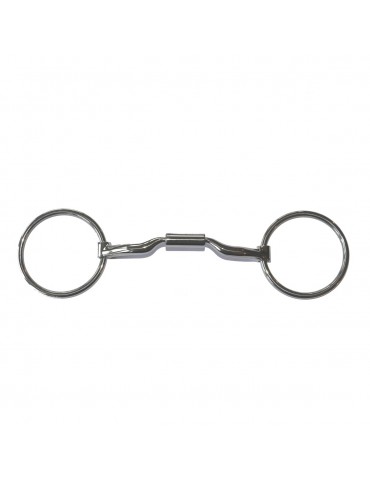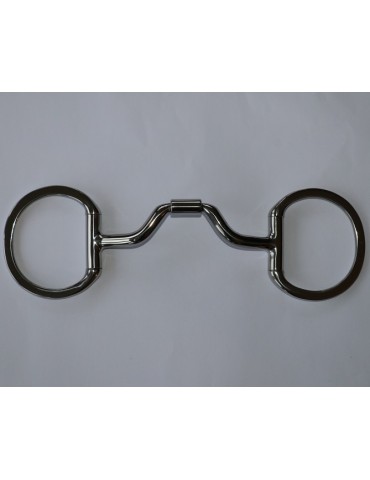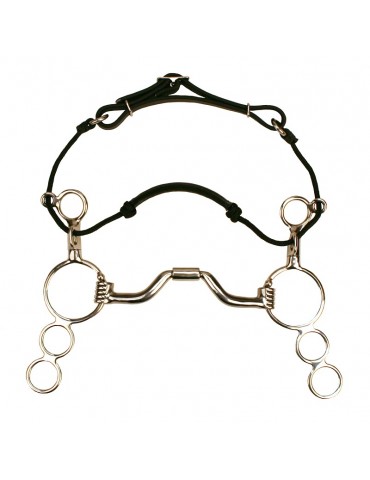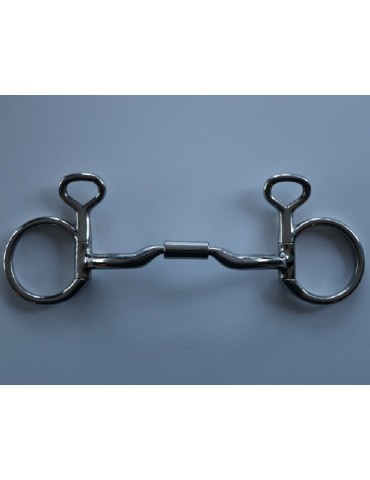Ported
Filter By
Best Sellers
Ported
The ported mouthpiece offers the horse tongue relief and allows him to be more relaxed. The horses tongue fills the entire cavity of the mouth and is extremely sensitive.
Three nerves are associated with the tongue and muscles of the face.
These are the Facial nerve (VII), Glossopharyngeal nerve (IX), and the Hypoglossal nerve (XII).
The Facial nerve is responsible for the motor function of the facial muscles, but also sensory input from the tongue for taste. The Hypoglossal nerve is responsible for motor of the muscles of the tongue. The Glossopharyngeal nerve (IX) is responsible for swallowing and some motor tongue movement. Issues with these nerves can show up as facial asymmetry, drooling out one side of mouth, difficulty drinking/eating, or partial paralysis of the tongue.
Research and development has brought us many variations of the 'ported' mouthpiece; and thankfully it is now available for most horse/rider combinations at various levels throughout training.
There are 19 products.
3136 Myler Combination with 36 Forward-Tilt Low Port Mullen mouthpiece
3136 Myler Combination with 36 Forward-Tilt Low Port Mullen mouthpiece
2633 Myler Pelham with 33 Ported Barrel mouthpiece
2633 Myler Pelham with 33 Ported Barrel mouthpiece
2833 Myler 33 Ported Barrel Snaffle on a Loose Ring cheek
2833 Myler 33 Ported Barrel Snaffle on a Loose Ring cheek
2606 Myler Pelham with 06 Low Ported Mullen Barrel mouthpiece
2606 Myler Pelham with 06 Low Ported Mullen Barrel mouthpiece
2604 Myler Pelham with 04 Low Port Comfort mouthpiece
2604 Myler Pelham with 04 Low Port Comfort mouthpiece
3004 Myler 04 Low Port Comfort Snaffle on an Eggbutt cheek with hooks
3004 Myler 04 Low Port Comfort Snaffle on an Eggbutt cheek with hooks
2804 Myler 04 Low Port Comfort Snaffle on a Loose Ring cheek
2804 Myler 04 Low Port Comfort Snaffle on a Loose Ring cheek
2906 Myler 06 Low Ported Mullen Barrel Snaffle on a Plain Eggbutt cheek
2906 Myler 06 Low Ported Mullen Barrel Snaffle on a Plain Eggbutt cheek
2933 Myler 33 Ported Barrel Snaffle on a Plain Eggbutt cheek
2933 Myler 33 Ported Barrel Snaffle on a Plain Eggbutt cheek
3043 Myler 43LP Low Ported Barrel Narrow Snaffle on an Eggbutt cheek with Hooks
3043 Myler 43LP Low Ported Barrel Narrow Snaffle on an Eggbutt cheek with Hooks
3133 Myler Combination with 33 Ported Barrel mouthpiece
3133 Myler Combination with 33 Ported Barrel mouthpiece
4104 Myler 04 Low Port Comfort Snaffle on a Hanging Cheek
4104 Myler 04 Low Port Comfort Snaffle on a Hanging Cheek




